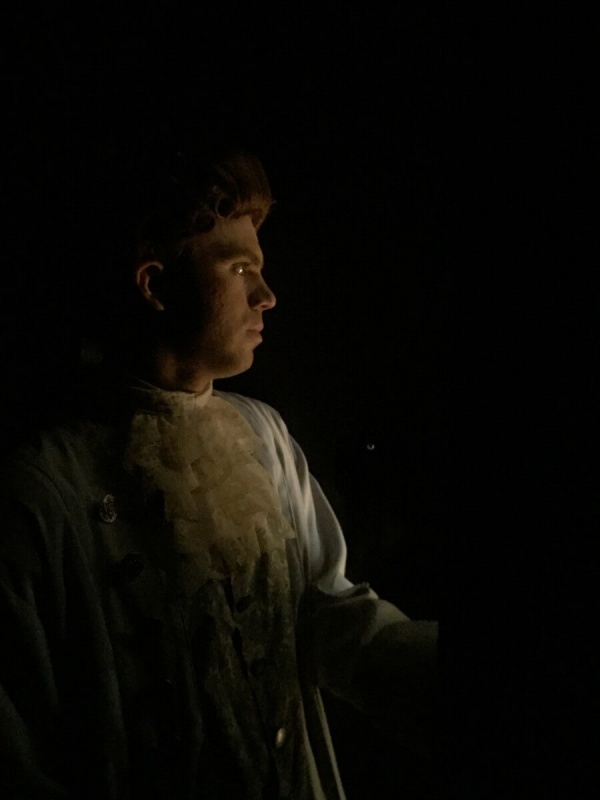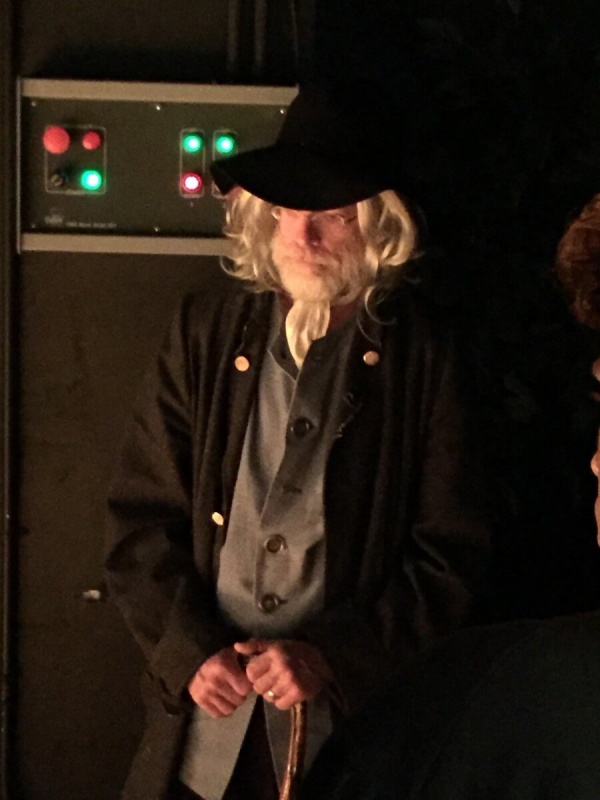The final performance we seemed more in sync than we had for the past four months. We hit our notes; we remembered our lines. Scene three, the longest scene in Broadway musical history, had plagued us through every performance. I had misspoke one of my lines in every performance and rehearsal until the last. None of our mistakes was enough for the audience to notice, but we noticed them. The twenty-plus actors and actresses who graced the stage of the Pocomoke High School for six performances in June—we noticed when we missed our lines. We noticed when we missed a cue.
But on that last night, we didn’t miss a beat. And when the final moment came, when Mr. Hancock, president of the Second Continental Congress meeting in Philadelphia in 1776, told congressional custodian McNair to ring the bell, I knew it was done. The way the characters in the play felt relief at having finally approved independency from Great Britain, we all felt a sense of relief that it was over.
Except it wasn’t quite relief. It was more than that, and less than that, too.
**
My journey to the stage began last year when I saw The Sound of Music at the Mar-Va Theatre in Pocomoke. Afterwards I talked to one of the stars of the show, Mark Tyler, and he told me he was trying to cast 1776. “I need someone who can do a Scottish accent,” he told me. I answered in my best Scottish brogue, and he smiled. “I’ll keep you posted on auditions.” And so I waited. And waited. And waited. Months passed. I worried that he’d forgotten about me, or that the play wasn’t going to happen.
Then I got the audition notice, and I got scared. An audition! A cold reading! And probably some singing! Despite my father’s belief that I had the voice of an angel, I knew there wasn’t a bucket on earth large enough in which I could carry a tune. Mark gave me a piece of advice that I’ll never forget. “Just go all out,” he said. “Go over the top, and then go further.” Which is what I did. I went to the auditions and spoke only in my accent. I read lines with as much belligerence as I could muster. I sang “With a Little Bit of Luck” from My Fair Lady because I could sing it in an accent.
In the week that followed all I could think about was whether I would get the part. Had I gone too far? Not far enough? When the call finally came I was over the moon with excitement.
I had no idea what I was doing. Sure I’d acted before—at home. As a boy I would impersonate celebrities I saw in movies or on TV: Ed Sullivan, John Wayne, Humphrey Bogart, Peter Falk, Mae West. My favorite was W.C. Fields. I wanted to be a ventriloquist and as a gift one Christmas I had received a W.C. Fields dummy. It was a beautiful puppet, and I spent hours wandering the house with him on my hand, telling my father and my brother, “Get outta here, kid, ya bother me.” I would call my father at work and pretend to be the early 20th century actor known for his quips and wisecracks. I talked for several minutes with him in my W.C. voice, and he spoke to me like I was the man himself, humoring his youngest son. Finally, always laughing at my own jokes, I broke the gag. “Haha, Dad. I fooled you. It’s me!” He never let on that he hadn’t been fooled at all.
This time it was real, though. I wasn’t trying to fool my father but a theatre full of strangers who needed to believe somehow that I was a pessimistic Scotsman from Delaware. I spoke in my accent at home, at school, at the grocery store. When I interacted with a stranger I would speak in the brogue and guage their reaction. Did they believe? My wife got sick of it pretty fast. My daughter enjoyed it at first, enjoyed the play-acting, though by the end of the run of the show even she had grown tired of hearing me speak in “Scottish.” Weeks before our performance dates, during the final stages of our lengthy rehearsal schedule, one of the other actors told me they’d only just found out that I wasn’t really Scottish. I took that as a compliment.
I wasn’t alone in inhabiting my character. The man who played Adams became belligerent and obnoxious on stage. Dickinson perfectly inhabited a character who turns the idea of indepence into a personal indictment of Adams because he knows how many of the congressmen dislike the man. Rutledge, in real life a softspoken and humble young man, was a firebrand of hostility and racial intolerence. It was the combined effort of all of us that brought the play to life. We all inhabited our characters and made each of them our own.
**
We’d only just opened when it seemed that we were closing. Six performances only, and they went by too fast. I tried to live in the moment of each performance, to experience it fully, though by that third day I was exhausted and just looking forward to a week off to regroup.
My Delaware colleague and on-stage rival, George Read, prepared me for some of what would come. Three days before opening night I felt like we were so far from ready. Lighting was still being worked out, some of the blocking was being changed, and I still hadn’t gotten that one line straight. “It’ll all come together,” he told me. “It doesn’t seem like it, but on opening night it’ll just happen.”
Like magic it did. It happened because we were all there, working together, supporting each other, pushing each other and pulling each other. Mark, the director, said, “What makes live theatre so special is that you come together like a family.” And that is exactly how it felt for me: this was, in some way, a new family to me. A theatre family. Like distant cousins who come together and share this one part of their lives, this piece of themselves.

That last night I wandered backstage and took candid photos of my fellow castmates. I wanted to capture little moments: Abigail Adams waiting for her cue; Dr. Hall from Georgia sitting next to Jodi, one of the stage managers; Rutledge watching the on-stage action through a narrow slit in the curtain; George Read lip-syncing to Adams’s final song; the Adamses and the Jeffersons waiting for the end of act one like they were in box seats at an 18th century opera. Those were pieces I wanted to remember, the moments behind the scenes, when like a family we let down our facade and acted no more. The lines I memorized will eventually fade away. But those flickering images will live on in my imagination and in my heart.
**
It came too fast, the final scene of the final performance. Hancock sent McNair to ring the bell, and the musical director at her piano in the pit made it ring. I wasn’t on a stage at that moment, though. I was in Philadelphia in 1776 watching history get made. And for that moment I felt the same sense of release my character, Col. McKean, must have felt. That we had finally done it. That our long journey, this long journey, to bring this play to life, was finally done.


